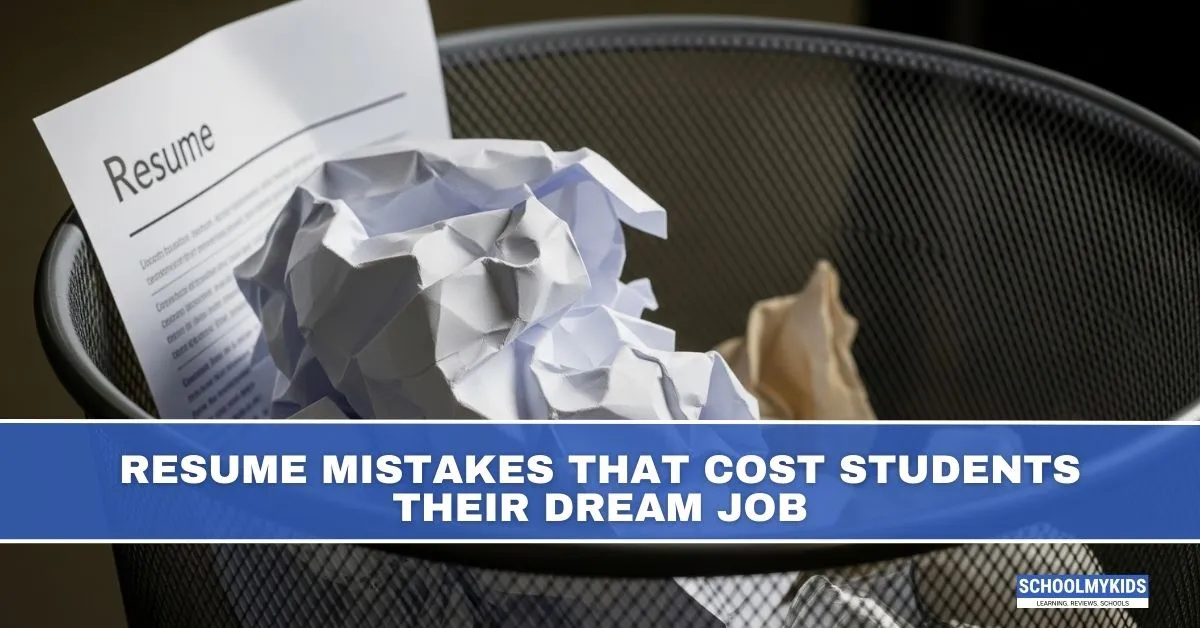Your resume is often the first impression you make on potential employers, and for students entering the competitive job market, even small mistakes can mean the difference between landing an interview and having your application rejected. These critical errors can cost you opportunities before you even get a chance to showcase your potential.
The Fatal Formatting Flaws
Grammatical Errors and Typos
Grammar and punctuation mistakes are among the quickest ways to eliminate yourself from consideration. Even minor typos can make you appear careless or uninterested in the position. Employers expect attention to detail, and a resume with errors provides an easy reason to reject your application.
To avoid this career-killer:
- Proofread multiple times and read your resume aloud to catch awkward phrasing
- Use grammar-checking tools like Grammarly, but don't rely on them completely
- Have a friend or mentor review it for a fresh perspective
Poor Formatting Choices
Messy formatting doesn't just look unprofessional—it can confuse Applicant Tracking Systems (ATS) and cause your resume to be overlooked entirely. A clear, professional layout makes it easy for employers to find your key information.
Essential formatting guidelines:
- Use a simple, one-column resume template that's ATS-friendly
- Choose easy-to-read fonts like Arial, Calibri, or Verdana in 10-12 pt for body text
- Maintain single or 1.15 spacing with one-inch margins
- Label sections with clear headings like 'Education,' 'Experience,' and 'Skills'
Content Catastrophes
The One-Size-Fits-All Trap
Attempting to use a generic resume for all applications almost always results in rejection. Employers want to see that you've written a resume specifically for them and can clearly demonstrate how you fit their specific organization.
Students often make this mistake because creating multiple versions seems time-consuming, but customized resumes significantly increase your chances of getting interviews.
Including Irrelevant Information
Listing everything you've ever done clutters your resume and buries the important information. Including irrelevant experiences can dilute the impact of your resume and make it harder for employers to see your relevant qualifications.
Focus strategically by:
- Highlighting only experiences and skills that relate to the position
- Tailoring your resume for each job application
- Emphasizing experiences that align with the job description and requirements
Professional Presentation Problems
Unprofessional Contact Information
Your email address might seem minor, but unprofessional addresses can make you look immature. An email like "partygirl123@gmail.com" immediately creates a negative impression.
Best practices:
- Use a basic format like
- If your name is taken, add a middle initial or shorter variation
- Ensure all contact information is current and that you check your email regularly
Going Over One Page
For students and recent graduates, exceeding one page is a critical mistake. Save two-page resumes for professionals with 10+ years of experience.
To stay within limits:
- Focus on your most relevant skills, achievements, and experiences
- Only include what directly relates to the job you're applying for
- Adjust margins and font size for extra space while keeping it readable
Description and Language Disasters
Weak Action Verbs and Vague Descriptions
Using weak verbs like "worked," "made," or "showed" fails to demonstrate your impact. These generic terms don't showcase your contributions effectively and make your resume blend in with countless others.
Replace weak language with:
- Strong action verbs like "developed," "managed," "improved," and "created"
- Specific achievements with quantifiable results when possible
- Detailed descriptions that show your actual contributions
Focusing on Duties Instead of Accomplishments
Simply listing job duties is a missed opportunity to showcase your value. For example, "Attended group meetings and recorded minutes" tells employers nothing about your impact, while "Facilitated weekly team meetings for 15 members and maintained detailed minutes that improved project tracking efficiency by 30%" demonstrates real value.
Transform your descriptions by:
- Emphasizing what you accomplished, not just what you did
- Using numbers and specific results whenever possible
- Showing how your contributions benefited the organization
Technical and Structural Slip-ups
Incorrect Verb Tenses
Inconsistent verb tenses make your resume look messy and confuse employers about your job history. This seemingly small detail can undermine your professional presentation.
Maintain consistency:
- Use past tense for previous roles (e.g., "managed social media accounts")
- Use present tense for current positions (e.g., "managing social media accounts")
Missing or Incorrect Education Information
The education section is crucial for students, so errors here are particularly damaging. Being unclear or inaccurate about your qualifications can immediately disqualify you.
Include proper details:
- List your degree's full name (e.g., Bachelor of Arts in Psychology)
- Use the complete university name, not abbreviations
- Add your GPA if it's 3.5 or higher
- Include expected graduation date if you're still in school
The Hidden Resume Killers
Ignoring ATS Optimization
Failing to include industry-specific keywords can result in your resume being filtered out by Applicant Tracking Systems before it reaches human recruiters. Many students don't realize that their perfectly crafted resume might never be seen due to poor keyword optimization.
Vague Objective Statements
Generic objectives like "seeking challenging opportunities" waste valuable space and tell employers nothing about your value. Instead of helping your application, weak objectives can actually hurt your chances.
Replace vague objectives with:
- Customized statements that use keywords from the job posting
- Specific examples of how you can contribute to the company
- Quantified achievements that demonstrate your potential impact
The Cost of These Mistakes
These resume errors don't just make you look unprofessional—they can completely eliminate you from consideration for positions you're qualified for. In today's competitive job market, hiring managers often receive hundreds of applications for each position. They're looking for reasons to narrow down the candidate pool quickly, and resume mistakes provide easy justification for rejection.
Students often underestimate how much these seemingly small details matter. A single typo might seem insignificant, but it can cost you an interview for your dream job. The good news is that most of these mistakes are completely preventable with careful attention to detail and strategic thinking about how to present your qualifications.
Remember that your resume is a marketing document designed to get you an interview, not a comprehensive life history. Every element should work toward demonstrating why you're the right candidate for the specific position you're seeking. By avoiding these common pitfalls and presenting yourself professionally, you significantly increase your chances of landing that crucial first interview—and ultimately, your dream job.








Be the first one to comment on this story.